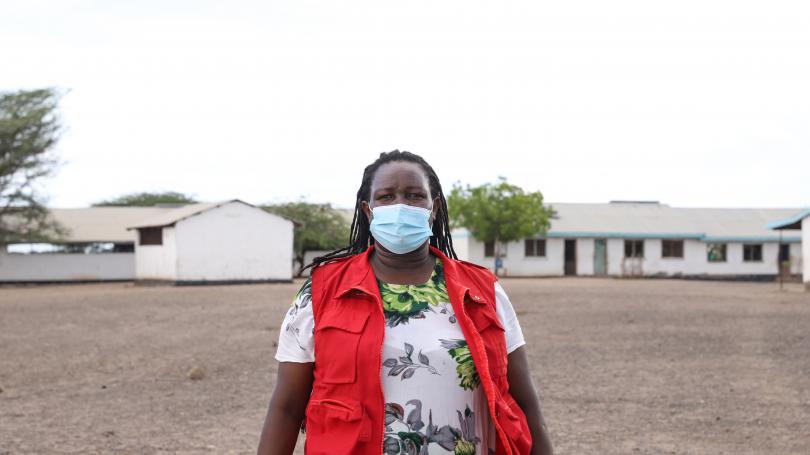Born and raised in Turkana, Save the Children’s Miriam Atonia has been serving her people in the middle of a pandemic

Growing up in the windswept Lodwar town in the then Turkana District, Miriam Atonia, 41, always knew she wanted to become a forensic scientists. She got this idea from her favourite thriller books in high school and was convinced that her curiosity, a scientific mind and keen attention to detail would set her up on the right path to success in this field.
But fate had different plans for her. For the last 15 years, she has been involved in several humanitarian projects, working with several non-governmental organisations including Save the Children to respond to disasters and emergencies in her Turkana community and in the neighbouring country of South Sudan.
Due to the cyclical nature of emergencies in Turkana, Miriam asserts that she was exposed to emergency response early in life, something that shaped her future for good.
“I remember in 1999, I was just fresh from high school when a devastating drought hit our community. We were losing lives and livestock and livelihoods. So, I got drafted by a non-governmental organisation as a food monitor where my work involved registration of beneficiaries, planning for dispatch and mobilizing the community,” she recalls. She was 20 years old.
But despite the community experiencing all these emergencies, Turkana County thanks to marginalization and the high levels of illiteracy has for the longest time lagged behind in terms of qualified personnel to offer services to the community.
“I saw that as an opportunity to close the gap and that is what informed the choice of degree that I went to pursue at university. I did home economics,” she says, adding that she was among the first group of female students from the community to make it to university.
Today, Miriam is working with Save the Children as the Early Childhood Development (ECD) officer for Turkana County. Her work involves overseeing implementation of education projects by Save the Children in the county.

When the Covid-19 pandemic hit the country and the government introduced several containment measures including restriction of movement between counties, it is field officers like Miriam who held the fort, ensuring that ongoing projects are not hampered with and that new pandemic response projects are rolled out swiftly and effectively.
According to Miriam, Save the Children has been supporting the fight against Covid-19 through provision of personal protective equipment to frontline workers in health care facilities, thermal guns, face masks and hand sanitizers.
“We have also be doing training in a bid to capacity-build the health care workers and community health volunteers (CHV). At the community level, much as we don't do direct implementation, we have been supporting and continue to support the awareness creation campaigns,”
Asked how the pandemic has affected children, Miriam says that there has been a psychological torture to everyone including children. Additionally, from her experience in Turkana, when children are out of school, they do not only miss education but they are also likely to go hungry since schools in partnership with aid agencies provide children with at least one meal a day. Girls also get their sanitary towels in school.
“When schools were closed, that responsibility shifted to the parents who were already struggling. This has forced children to go out to work so that they can supplement the family income, exposing them to child labour,” she says.
When it comes to winning the war on Covid-19 there is no doubt that it will take concerted effort from state and no-state actors. For Miriam, the role of donors in the fight cannot be overemphasized.
“Our systems are overstretched. The support from donors is very important in complimenting what the government is doing. Considering that we still have the normal diseases like malaria, TB and HIV which were already burdening our healthcare system, with a new pandemic the country can easily be swept off if we don’t have their support,” says Miriam.
At the moment health care workers battling Covid-19 in Kenya are complaining of neglect from the government even threatening to down their tools. For Miriam, the plight of frontline heath care workers strikes a deeply personal chord. Her two sisters are nurses and they are both leading the fight on Covid-19.
“As she prepares for yet another day of community work in the vast Turkana County, Miriam tells us that here community health volunteers are the unsung heroes of Covid-19 war. She says: “CHVs have played a critical role in creating awareness and ensuring that the messages get to the communities.”





